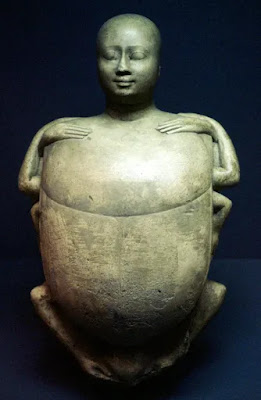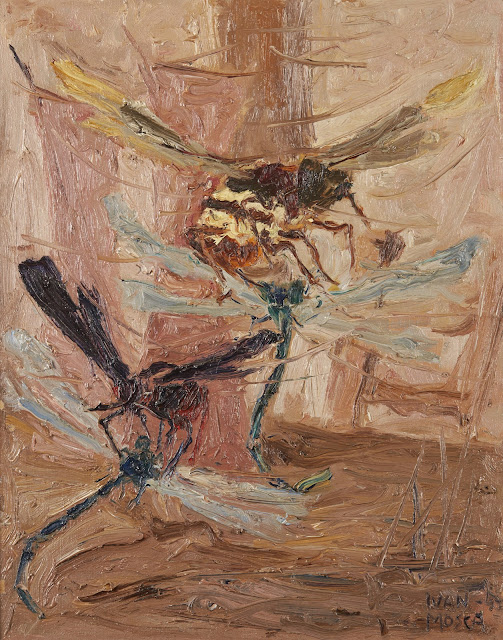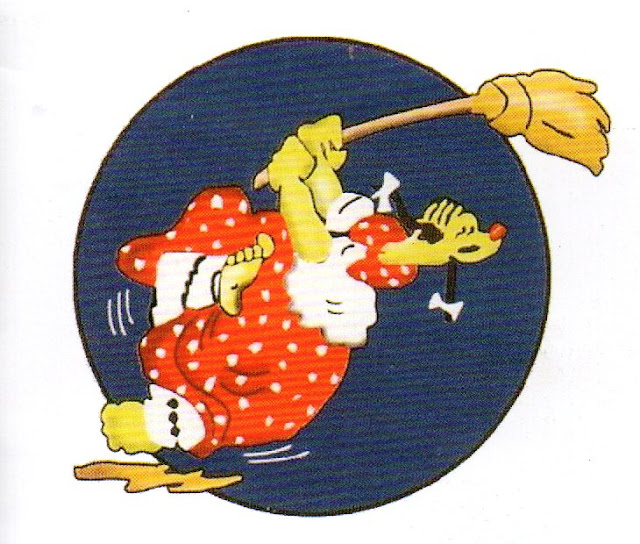Small Pesky Critters
Fig trees, aromatic plants, donkeys and horses and foxes and pigs can all be found in the Garden of God, that is the English version of a book, written in Italian by Fr. Claudio Doglio, in which he writes about all the plants and animals that are mentioned in the Scriptures. If you click on the links, you will find several chapters excerpted from the book and translated into English.
The following one though, deals with small somewhat creepy and bothersome creatures that also appear in the Bible. They represent the minor problems in our lives that can eat away at our spirit or prod us to move in the right direction.
Your comments, as usual, will be greatly appreciated.
Thanks,
L. Pavese
Small pesky critters
by Fr. Claudio Doglio
Small irritating animals often figure in the Bible as punishments.
That happens in several cases of the so-called “plagues of Egypt,” where frogs (Exodus 7,26-8,11), mosquitos (Exodus 8,12-15), flies (Exodus 8,16-28), and locusts (Exodus 10,1-20) become instruments of God’s intervention.
The main intent of that epic narration is not to present them as examples of destructive blows, but rather to evoke strange signs and prodigies that have symbolic value and, therefore, can reveal the presence and the action of God.
The telling of the story of the prodigies performed by God for the liberation of His people from Egypt was a very widespread tradition. But it was also very fluid, varied, and not set in stone. In addition to the Book of Exodus, the story is mentioned in some historical psalms, in the prophecies and, above all, in the Book of Wisdom.
Besides the great events with which God freed His people from the Egyptian slavery, the animals through which God upset the quiet of the oppressors of Israel are remembered in the long Psalm 77 (78), which invites Israel to think about her history full of divine blessings but also people’s ingratitude. He set against the Egyptians horseflies to devour them and frogs to destroy them; He gave their harvests to the caterpillars, and let locusts render their labors vain.
..jpg) |
The author of the Psalm wants the reader to understand that divine action and stimulus to consider one’s situation more thoroughly can be behind even frogs and worms.
The goal of these texts is to educate and, in this case, to show that the enemy to be defeated is the heart of stone, that is, the hardening of one’s heart.
The stony heart is a fundamental metaphor that indicates stubbornness and the rejection of the word of God. These traits are typified by the pharaoh, who is almost a theatrical character that embodies the negative attitude of the hardheaded person.
A page from the prophet Amos reminds Israel of a series of calamities of that era and interprets those facts as lessons from God. In those days though, it was not the pharaoh that did not understand, but it was Israel, the very people of God, that had hardened its heart.
That is, the preachers of ancient Israel used the tale of the plagues to teach the people and, when they narrated those episodes, they pointed their fingers against their contemporaries telling them: “Beware, because you risk being like the pharaoh!” (Amos 4,6-12).
The Book of Wisdom in particular, referring to the plagues of Egypt, reflects upon the moderation of God in a specific digression (Wisdom 11,15-12,27) that shows how God intervened to punish the Egyptian oppressors with frogs, locusts, flies, and mosquitos. He could have sent bears, fierce lions, or even create new monsters to exterminate the Egyptians and annihilate them and, in so doing, give them a much harder lesson; but God instead just pricked them, irritating them but with moderation. The author of the Book of Wisdom explains the Egyptians were tormented by small critters because, misled as if they were children, they considered gods the most repulsive and ignoble animals. For that reason, God treated them like unreasonable children and, with those punishments, He almost toyed with irony, making them suffer using the same animals they thought to be divinities.
 |
|
Stone model of the god Khepri emerging from a scarab shell. Egypt, late period. 664 to 332 BC. |
In these occurrences we can recognize the style of God, who does not use brute force against men; because He is compassionate towards everyone, and turns a blind eye to sin, waiting for the repentance of sinners. The Lord, lover of life, is indulgent towards all things because he loves them.
Accordingly, the plagues of Egypt were not destructive interventions, but rather stimuli for change. Those small pesky critters can call to mind all the little problems of our lives: those seemingly small and irrelevant situations that can be annoying like flies and mosquitoes. But they can be for us like rebukes, goads through which God prods us with moderation to tell us we must change.
Another cue for reflection is offered to us by Jonah, who had to contend with very large and very small animals. In fact, when the prophet Jonah was sent by the Lord to Nineveh, he disobeyed and ran in the opposite direction. But he was shipwrecked and ended up at the bottom of the sea, where he was swallowed by an enormous fish. The animal in the story is neither a whale nor a big shark, but a mythical primordial water monster. Jonah’s shipwreck is equivalent to Dante’s “shadowed forest.” It represents human failure, an existential crisis that takes him to the brink of destruction. Aware of his failure, from the depth of the abyss the recalcitrant prophet Jonah sends a prayer of supplication and of laud up to God, and so he is freed.
Then the story of Jonah starts again from the beginning, with him having the same mission to preach in Nineveh. But this time he obeys, and the result is amazing: all the inhabitants of Nineveh convert and make penance. However, the story does not have a glorious ending because Jonah becomes angry when he sees the mercy of God, and he cannot accept the welcoming of foreigners among the saved ones.
So, after the crisis of humidity Jonah now enters a crisis of drought. He retires outside of Nineveh to observe the city, and the Lord grows a castor bean plant near him to protect him from the strong sun. But soon after, at daybreak, God also sends a worm to gnaw the plant, which dries up. As a result, Jonah’s situation turns painful again. So, after the great fish we have a small worm. In any case, Jonah’s overall circumstances worsen to the point that he wishes to die.
The worm also obeys God, and the plant it ate is part of God’s providential project too. The Lord provokes Jonah with moderation, so that he can free himself from his fixations and his close-mindedness.
The story has an open end, leaving unanswered a divine question addressed to the rebel prophet. In this way, the readers are brought into the story so they, too, are prodded to take the correct theological approach towards strangers.
Jesus also refers to small animals that can be harmful when He invites his disciples to be wise: “Do not store up for yourselves treasures on earth, where moth and decay destroy, and thieves break in and steal. But store up treasures in heaven, where neither moth nor decay destroys, nor thieves break in and steal.” (Matthew 6,19-20). The same Greek word for moth, in the parallel text of Luke is translated as “house borer” (Luke 12,33). [TN: The author writes in Italian and refers to the Italian translations of the Bible. In the English language bibles, the word “moth” is used]. The common house borer is a small bug that devours wood. They are small insects, like moths [TN: actually, the house borer is a beetle], whose larvae feed on fabrics, especially wool, and therefore like to live in closets where they can eat clothes. Evoking these small harmful critters serves the purpose of putting people on guard against the corruption of all earthly things, as James tells us in his Letter: “Your wealth has rotted away, your clothes have become moth-eaten. (James 5, 2).
House-boring beetles and moths represent our small sins and those hidden defects that, without exterior signs, day after day eat away at our fiber and make holes in it until we discover that it is seriously ruined.
Reference to these pests is a metaphor to tell us that our spiritual life can be damaged by small things. It is, therefore, not to neglect the spirit’s harmful insects; rather, we must defend against all those small hidden threats that, given time, could destroy a person.
In Psalm 39, it is written in an intriguing way that the Lord acts like a moth: “When you rebuke and discipline anyone for their sin, you consume their wealth like a moth — surely everyone is but a breath.” (Psalm 39,11). He corrodes men’s treasures with the intent of correcting their ways. That is also part of the divine project, and even in a small damage there can be a teaching from God.
This post is a translation, from Italian, of a chapter of Fr. Claudio Doglio's book Il Giardino di Dio (The Garden of God), published in Italy by Effatà Editrice.
Fr. Doglio was ordained in 1985. He achieved his doctorate in Biblical Theology at the Pontificia Università Gregoriana. After carrying out his duties in various position in the Diocese of Savona, is now the pastor of a parish in Varazze (SV). He's the author of numerous biblical studies, and teaches at the Theological Faculties of Northern Italy of Genoa and Milan.
The picture under the title is by Ivan Mosca.
The painting with the dead frog is a 1630 still-life by Ambrosius Bosschaert II.
The etching of Jonah under the dead tree is by Jacob Steinhardt (1887-1968).
Many thanks to J. A. Jenkins Pavese for reviewing my English version.
L. Pavese





Comments
Post a Comment